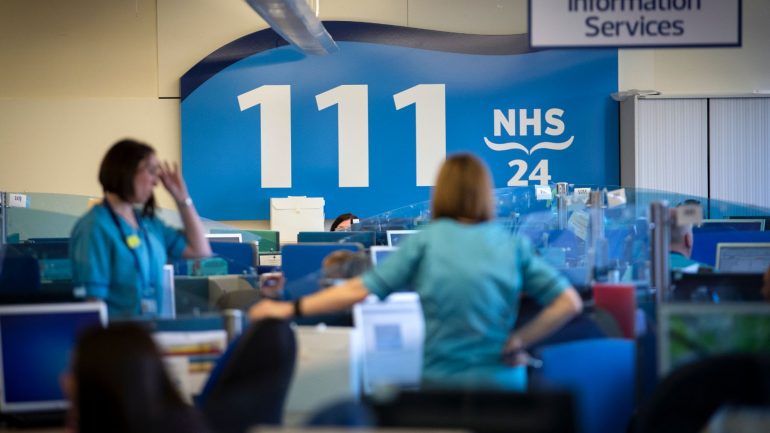More than 16 and a half thousand coronavirus patients have now died in the United Kingdom.
According to the latest aggregate data from the Ministry of Health, which concern until 5 pm on Sunday, 16.509 patients had died.
The number refers only to people who lost their lives while being treated and not deaths in the community.
As of 9 a.m. Monday, out of a total of 386.044 citizens examined, the confirmed cases amounted to 124.743.
The daily increase in deaths was 449 and in cases 4.676.
Johnson Concerned About Second Coronavirus Outbreak
Concerned about a possible "second peak" of the coronavirus in the UK if the restrictive measures are lifted early, said the recovering Prime Minister Boris Johnson, according to a Times article.
Downing Street confirmed that the concern was expressed by the prime minister in a meeting with Deputy Foreign Minister Dominique Raab and his advisers on Friday, as he continues to recover from the coronavirus at the official prime minister's holiday home in Che.
The information comes as the government is under pressure to present a plan to exit the restrictive measures. On Sunday, Education Secretary Gavin Williamson denied reports that there was a plan to phase out schooling from May 11, saying "I do not have a date yet."
In an unprecedented move, meanwhile, the British government issued a statement of more than 2.000 words, rejecting point-by-point an extensive Sunday Times article attributing the government's lack of preparation, oligarchy and laxity in dealing with the pandemic.
Among other things, the article talked about "five critical weeks that were lost" at the end of January and in February. He noted that Boris Johnson did not attend the first five meetings of the emergency response committee, known as Cobra, convened to assess the public health risk from the coronavirus.
In its response, the government emphasizes that it is customary for these meetings to be chaired by the Minister in charge, as was the case in these cases, as the government's scientific advisers at the time still considered the risk to the public health from the virus and as the World Health Organization had not yet declared a pandemic.
The British government is strongly accused these days of not acting sufficiently to meet the needs of doctors and nurses in such protective equipment, with many hospitals warning that within days they will run out mainly of medical gowns and other consumables.
The shadowy Labor Health Minister John Asworth referred to the Sunday Times investigation to accuse the prime minister of being "missing" during the initial phase of the epidemic and to blame the government as a whole for "serious mistakes".
He pointed out in particular the shortcomings in personal protective equipment, the alleged delay in enforcing traffic restrictions and the delays in providing diagnostic tests and respirators for the NHS national health system.
Meanwhile, the doctors' reaction has been provoked by the response of the deputy chief medical officer Dr. Jenny Harris in a press conference about the lack of personal protective equipment on Sunday.
Dr Harris said the UK was a model for pandemic preparation and that a "more adult debate" was needed on the subject of personal protective equipment.
With their posts and posts on social media, doctors say they are outraged by Dr. Harris, stressing that in the short term they will have to decide whether to risk their own lives to save the lives of patients, as they run out of necessary protective consumables.
The Public Health Agency of England, represented by Dr Harris, has already issued a new directive to NHS staff to reuse disposable materials where possible.
First clinical vaccine trials in coronavirus patients
In another development, the first clinical vaccine trials in coronavirus patients will likely be carried out later this week by an Oxford University research team, Dr Sarah Gilbert told the BBC.
He said final safety checks are expected to deliver the vaccine to carriers of the virus.
As he said, five years of work has been done in a few months. Dr Gilbert said weeks ago that with the right funding, she hoped the vaccine might be available as early as next September.
